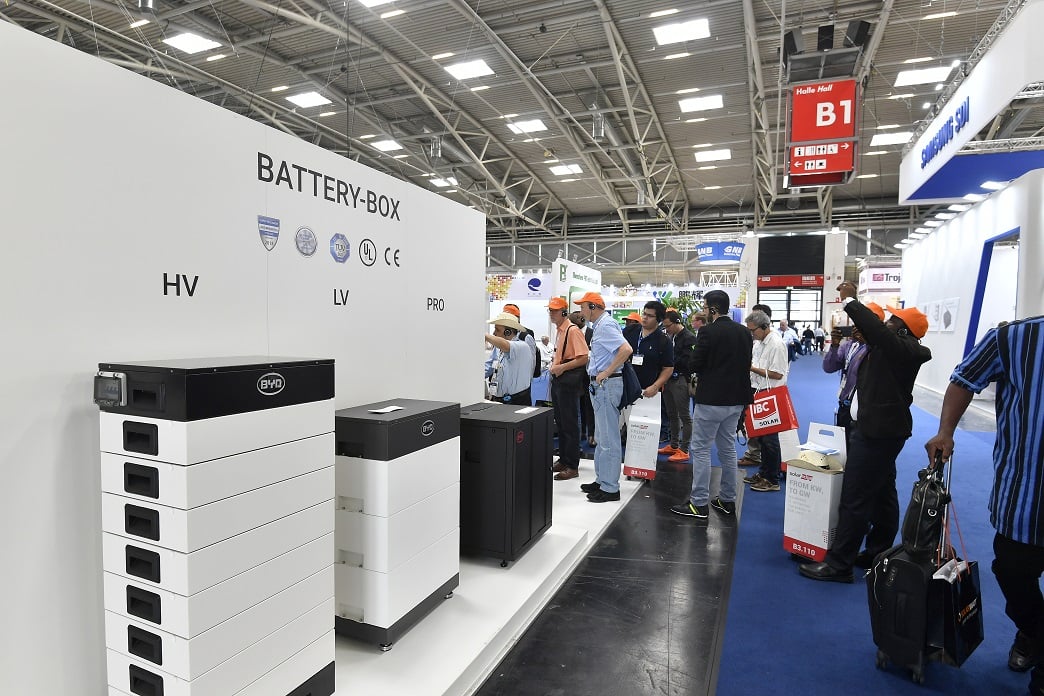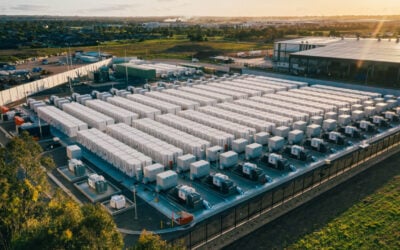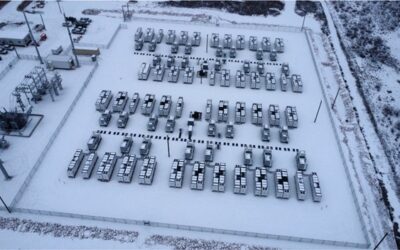
China’s BYD has signed a deal which could see up to 100MWh of its systems deployed in Mexico as part of a distributed energy and large-scale solar buildout by finance group Pireos Capital.
The battery, electric vehicle and stationary storage system manufacturer has signed a deal with Pireos for projects in the Latin American country. Pireos, an energy fund created to finance projects combining PV and energy storage systems (ESS), has a two-year plan in place to execute 240MW of distributed energy and large-scale solar projects for Mexico.
According to BYD, the pair is already in talks with potential engineering, procurement and construction (EPC) partners to deploy half of the 100MWh project capacity within the next 12 months. Pireos was only founded last year, although the company’s management claims more than two decades of experience of developing solar projects in 17 different countries. The company is seeking to foster investment opportunities in solar, storage and electric transportation, headquartered in Mexico City.
“We have created a specialised financial vehicle to finance the largest PV+ESS project pipeline in Mexico,” Pireos Capital CEO Manuel Vergara said.
Try Premium for just $1
- Full premium access for the first month at only $1
- Converts to an annual rate after 30 days unless cancelled
- Cancel anytime during the trial period
Premium Benefits
- Expert industry analysis and interviews
- Digital access to PV Tech Power journal
- Exclusive event discounts
Or get the full Premium subscription right away
Or continue reading this article for free
BYD makes energy storage systems using lithium iron phosphate (LFP) batteries for residential and commercial through to large and utility-scale. A BYD press release said that the partnership will enable Pireos to offer integrated solar-plus-storage solutions with smart, software-driven integration capabilities in Mexico for the first time. BYD said this could mitigate the risks associated both with deploying new technologies such as lithium batteries for the grid and reducing the challenges posed by integrating battery systems from multiple vendors.
Navigant: Mexico open for energy storage business
The market for energy storage in Mexico appears to have been slow to develop, with few big announcements emerging since GE claimed in 2017 to Energy-Storage.news that it was at the “very early stages” of developing large-scale storage systems in the country. Then, at the beginning of January this year, Navigant Research analyst Ricardo Rodriguez wrote in a company blog that the nascent battery storage sector in Mexico is now “open for business”, following the 2013 deregulation of the grid which ended a state-run monopoly for electricity supply.
“Although most investment to date has centred on the generation side, deregulation has also greatly expanded opportunities for battery storage,” Rodriguez wrote.
“While the most desired applications for battery storage are similar to those in the US market, including demand reduction, transmission upgrade deferral, peak capacity, and renewables integration, the underlying context for those needs differs in its details – primarily the result of geography.”
Areas of mountainous terrain and the need for extensive transmission system upgrades just to maintain the status quo of energy supply is putting a strain on transmission lines, for instance. Meanwhile, Mexico’s first large-scale battery, a 12MW/12MWh system at a car factory in Monterrey, was installed to ensure the reliability of power supply at that facility in the event of existing gas engines failing. Electricity prices for industry rose significantly in some parts of the country last year, providing a further opportunity for energy storage, Rodriguez highlighted.
BYD and Pireos did not specify which applications the former’s LFP systems will provide, but the battery company said they would be capable of providing a variety of business cases and services from transmission investment deferral, frequency regulation, peak shaving, emergency backup and load shifting to virtual power plants (VPP) and net-zero energy projects, such as housing complexes.





